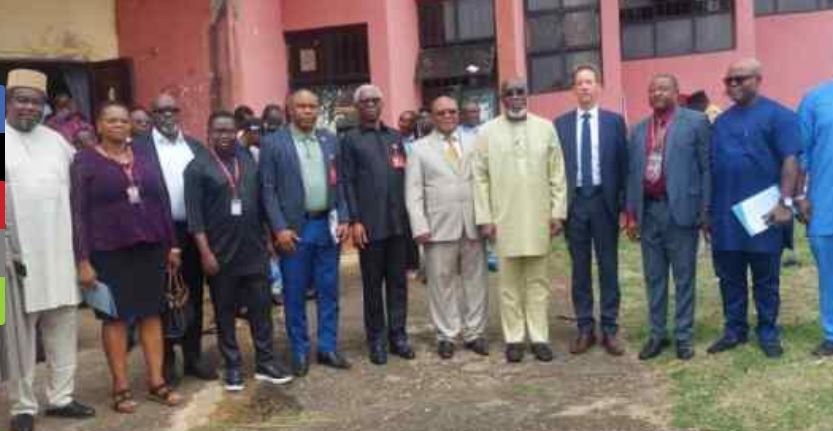
The Consul General, German Consulate, Lagos Nigeria, Weert Borner, has said that Germany is partnering Nigeria in building renewable energy sources in order to assist the country out of her poor energy delivery.
Borner said this in a lecture delivered at the Enugu State University of Science and Technology (ESUT), Enugu, entitled “German-Nigeria Cooperation in the Global Energy Transition.”
He said that renewable energy sources were cleaner and environmentally-friendlier.
He called on the Nigerian government and individuals to invest more on renewable energy, which according to him, would help in job creation along its value chain.
He further advocated for the use of gas system to replace the fuel and diesel generators to save cost and reduce carbon emissions.
“In our energy partnership with Nigeria, there are two main focuses that we have already started.
“One is on supporting Nigeria in building renewable energy sources, not only solar but wind, biomass and hydropower.
“The second one is to improve the energy grid system for Nigeria.
“Gas should be systematically used to replace the largest source of energy in Nigeria, which is the decentralized generators running on petrol or diesel.
“In both business and environmental terms, it is the major polluting source of energy which contributes in global warming,” Borner said.
Speaking the Governor of Enugu State, Dr. Peter Mbah, said that the state had keyed into the energy transition trend.
Mbah, who was represented by the Secretary to the State Government, SSG, Professor Chidiebere Onyia, said that Enugu State had launched geo-mapping efforts to evaluate the commercial potential of her natural gas.
He added that plans were on course to modernise the transport system, using CNG buses to replace smaller and less efficient buses in the state.
Onyia said that the government would convert most vehicles in the state to become solar-powered.
“What Enugu State Government is trying to do through the policy direction of the Governor Peter Mbah, and the Enugu State Electricity Law, is to open an electricity market that harnesses opportunities for investors to come in and set up generation companies.
“In that way, we will have generation framework that will service our people and provide the necessary energy.
“We did a preliminary energy audit and we have a projection of about 700 megawatts and current share of EEDC is less than 100 megawatts of electricity for the whole South-East and that would tell you what portion comes to Enugu State.
“That would not meet the needs of our agro processing zone outlook and our industrial clusters and other initiatives the government is pursuing.
“So, this partnership with the German Government and Enugu State helps us with both the technical capacity for our new electricity regulatory commission and other aspects towards building our economy.”
The Vice Chancellor of ESUT, Professor Aloysius Okolie, said the goal of the University is to be most competitive in research, teaching and scholarship.
According to him, the University had established Centres of Excellence geared towards realising its scholarship endeavours.
He said that the ESUT Management has installed solar energy in the students halls of residence to address water problems.
The Vice Chancellor called for collaborations between the German universities and ESUT in knowledge transfer and exchange programmes.